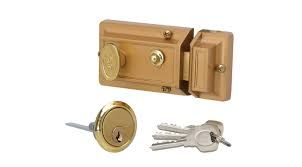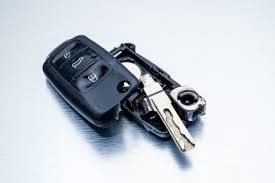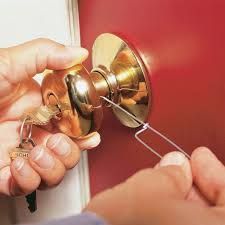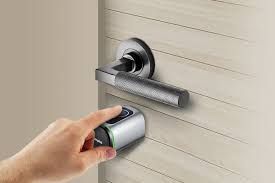10 Situations You Need a Locksmith For
Locks are integral to our sense of security, whether it’s for our homes, vehicles, or businesses. Yet, life has a way of throwing unexpected challenges our way, and that’s where professional locksmiths step in as unsung heroes. From getting locked out to upgrading security systems, locksmiths like Brothers Locksmith provide a range of automotive, residential, and commercial services to help you stay safe and stress-free.
In this article, we’ll explore ten common scenarios where calling a locksmith isn’t just helpful—it’s essential. Let’s dive in!
Locksmith Scams: How to Protect Yourself
1. Locked Out of Your Home
You’ve had a long day, and as you reach your front door, you realize your keys are inside—or worse, you’ve lost them altogether. Home lockouts are one of the most common reasons people call locksmiths.
A professional locksmith can quickly unlock your door without causing damage, using specialized tools and techniques. If your lock is damaged or outdated, they may recommend upgrading to a more secure option, like a smart lock or deadbolt.
Pro Tip:
Avoid future lockouts by giving a trusted neighbor or family member a spare key, or consider installing a keyless entry system. These systems allow you to unlock your door with a code or even through your smartphone.
2. Misplaced Your Car Keys or Locked Them Inside?
We’ve all been there: You’re running errands, and you realize your car keys are sitting on the driver’s seat while you’re locked out. Car lockouts can be frustrating, especially when you’re in a rush.
Modern locksmiths are equipped to handle car lockouts for all vehicle types, from traditional keys to key fobs and transponder keys. They can unlock your car, replace lost keys, or even program a new key fob on the spot.
Why Choose Brothers Locksmith?
Our team specializes in automotive locksmith services, ensuring quick and efficient solutions for car lockouts, key replacements, and ignition repairs.
This Might Help: How to Avoid Losing Your Keys: Tips for Better Organization
3. Lost Your Keys? Why Rekeying Is Safer Than Copying
Losing your keys isn’t just an inconvenience—it’s a potential security risk. Someone might find them and gain access to your home, car, or office. Instead of copying a new key, rekeying your locks is a safer and more cost-effective solution.
Rekeying involves altering the lock mechanism so old keys no longer work, and you receive a new set of keys. It’s an affordable way to ensure your safety without replacing the entire lock system.
Pro Tip:
If you frequently misplace keys, consider a key organizer or switching to a smart lock system that doesn’t rely on physical keys.
Dealing with lost or stolen keys
4. After a Break-In: Securing Your Peace of Mind
A break-in can shatter your sense of security, but a locksmith can help you regain control. After reporting the incident to the authorities, your next step should be securing your property.
Locksmiths can:
Replace damaged locks.
Install high-security locks or deadbolts.
Provide a thorough security assessment to identify weak points.
Why It’s Important:
A prompt response not only restores your safety but also deters potential intruders from targeting your property again.
5. Broken Keys: When They Snap Inside the Lock
Keys can break for several reasons: years of wear, a rushed attempt to unlock the door, or even poor-quality materials. When a key snaps inside a lock, removing it yourself can cause more harm than good.
Professional locksmiths use specialized tools to extract broken keys without damaging the lock. If the lock itself is compromised, they’ll recommend a replacement or repair to restore functionality.
Preventative Tip:
Regularly inspect your keys for signs of wear and replace them before they weaken.
How to extract a broken key from a lock
6. Moving into a New Home? Rekeying Is a Must
When you move into a new home, the first thing on your checklist should be securing the property. Previous owners, contractors, or even neighbors may still have copies of the old keys.
Rekeying the locks ensures that only you and your trusted family members have access. It’s a small investment that offers immense peace of mind.
Combine It with an Upgrade
While rekeying, consider upgrading to more secure locks, such as deadbolts or smart locks, to enhance your new home’s security.
7. Need to Upgrade Your Security System?
Security technology has come a long way. Whether you’re a homeowner or a business owner, upgrading your locks and security systems is a wise investment.
Modern locksmiths offer:
Smart locks that can be controlled via apps.
Keyless entry systems for homes and offices.
CCTV systems and advanced surveillance for businesses.
Why Brothers Locksmith?
We provide customized security solutions for residential and commercial clients, ensuring your property is equipped with the latest technology.
8. Forgotten Safe Combinations or Locked Out of Safes
Safes are designed to be impenetrable, but even the best can become inaccessible if you forget the combination or lose the key. Locksmiths trained in safe services can open your safe without causing damage, retrieve your belongings, and even reset the lock mechanism.
Pro Tip:
Keep a copy of your safe’s combination in a secure location or with a trusted confidant.
9. Damaged Locks After Wear and Tear or Weather Exposure
Locks are exposed to the elements and daily use, which can cause them to wear out over time. Rust, dirt, or freezing conditions can make locks stick or stop functioning entirely.
A locksmith can assess the condition of your locks and recommend repairs or replacements. For businesses, they can also maintain specialized locks like master key systems or electronic locks.
Preventative Maintenance:
Schedule an annual lock inspection to ensure all locks are in top working condition.
10. Commercial Lock Issues: When Business Security Is at Risk
Business owners rely on locksmiths to secure their premises against theft, unauthorized access, and vandalism. Common services include:
Installing master key systems for easy access control.
Repairing or replacing locks after employee turnover.
Setting up panic bars and exit devices for compliance with safety regulations.
Conclusion
Locks are more than just barriers—they’re protectors of your personal space, property, and peace of mind. Whether you’re dealing with a lockout, lost keys, or outdated security systems, Brothers Locksmith is here to help.
With expertise in automotive, residential, and commercial locksmith services, we’re committed to providing swift, reliable, and professional solutions for all your needs.
Don’t wait for an emergency! Contact Brothers Locksmith today and let us secure what matters most to you.
Call Us Any Time!








